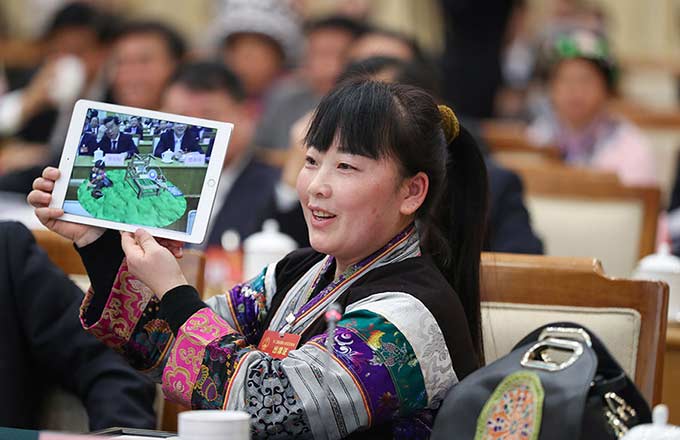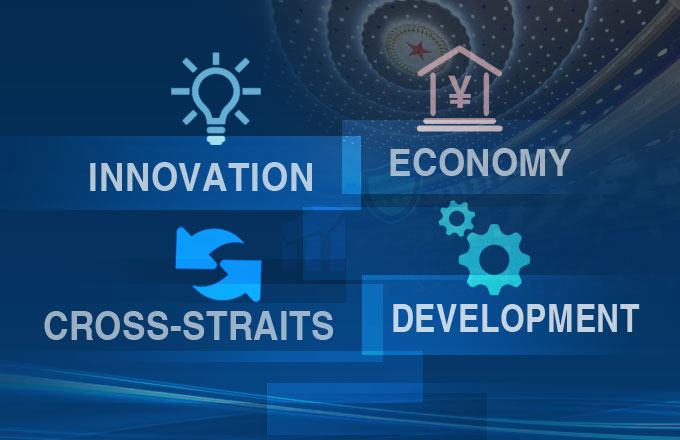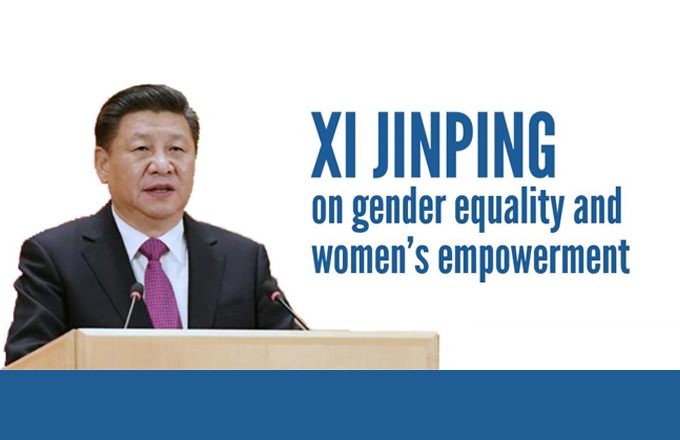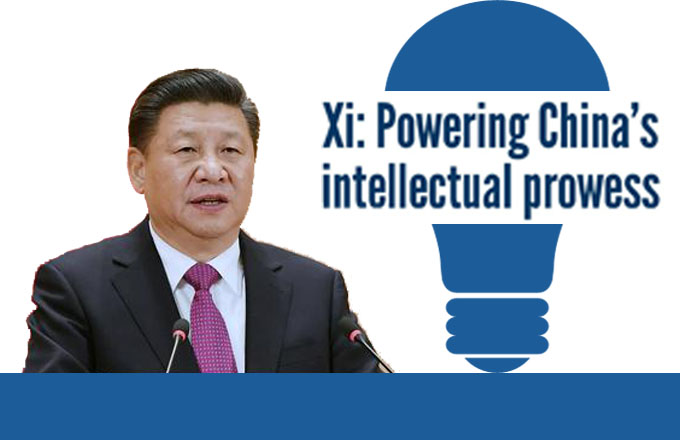Commercialization of technology accelerated
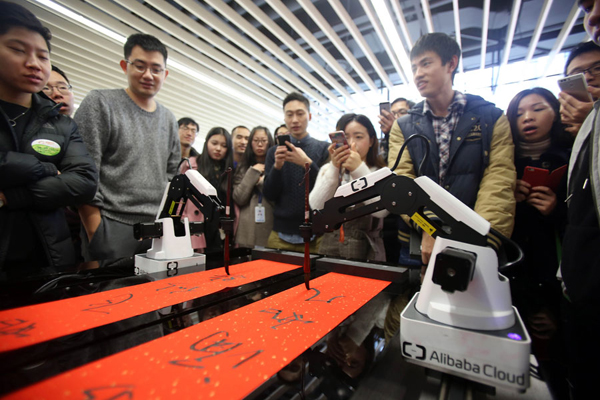 |
|
Robots?write Spring Festival couplets for Alibaba employees in Hangzhou, East China's Zhejiang province in January. [Photo/VCG] |
Through major science projects, China will continue to commercialize the fruits of its technological development with more policies and economic incentives, the Ministry of Science and Technology said on Wednesday.
China is conducting 16 major science projects, ranging from high-end computer chips to large passenger aircraft. "The projects are paramount to China's scientific research," said Chen Chuanhong, head of the ministry's National Science and Technology Major Project Office.
"The projects cover manufacturing, energy, medicine and other fields that will produce breakthroughs and globally competitive products," Chen said. "Our scholars and officials are working on science and commercialization at the same time, which saves time and resources, and allows products to reach the market sooner."
China's technological trading volume reached 1.14 trillion yuan ($166 billion) last year, surpassing the 1 trillion milestone for the first time, according to Li Meng, vice-minister of science and technology. Information technology, advanced manufacturing, new energy, biomedicine and other high-tech fields accounted for 80 percent of total trade, Li added.
"These are the fruits of commercialization of science and technology research," Li said, adding that the ministry will continue to encourage universities, businesses and local governments to provide "more comprehensive services, capital and policies to support the commercialization process".
Turning science into marketable products is a "long and rigorous process" that requires "constant interaction and feedback between scientists, businesses and the government," Li said.
Scientists need evaluation and investment from third-party consultants and companies, while companies advise scientists how to make products more cost-efficient and suitable for specific markets, and the government oversees the process, making sure every step is lawful and beneficial to all parties, he said.
Difficulties include the lack of policies connecting these three parties and making them function in an organic manner, especially at the local level, Li said, adding that China also lacks specialized talent and professional institutes to facilitate the process.
He Defang, the ministry's director of policy and oversight, said China will build new technology sharing platforms for researchers and implement new laws to protect their intellectual property. China will also encourage companies to build innovation centers, staffed with professional technical managers, to cooperate with universities and institutions, He said.
"The ministry's job is to incentivize the process through laws and policies, creating a comprehensive, efficient, market-based commercialization system," he added.
The ministry has launched eight investment funds, including a 10-billion-yuan fund for commercializing major science projects, he said.







